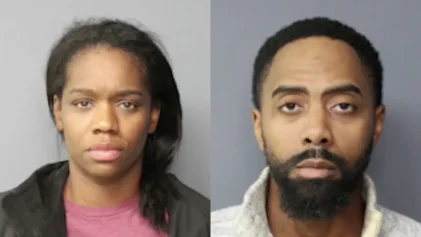
Paul Quinn College in Dallas, Texas. Photo courtesy of HBCUBuzz.com
One of the oldest HBCUs in the nation is working to cultivate the next generation of Black leaders through a new Black think tank.
Last week, Paul Quinn College President Michael Sorrell announced the launch of the school’s new African-American Leadership Institute. With the help of elected Black officials across Northern Texas, the initiative aims to tackle issues affecting African-Americans in the state and beyond, The Dallas Morning News reported.
Organizers of the new think tank call it “a premier model for the study and advancement of public policy, economic development, education, and leadership development as it relates to the African-American community throughout the state of Texas.” Elected officials from Dallas, Collin, Denton, Ellis, and Tarrant counties will primarily comprise the hub of Black thought leaders, according to the publication.
The HBCU’s new initiative was somewhat fashioned after the Latino Center for Leadership Development, a think tank established by local Latino leaders last March. Their platform fuses research concerning issues in the Latino community with policy solutions pushed from Dallas all the way to Capitol Hill in D.C. The African-American Leadership Institute seeks to do the same thing.
As leader of the nation’s first urban work college, Sorrell has been instrumental in halting the rapid decline of Paul Quinn College. Over the last eight years, he has implemented some major changes to turn the school’s dire situation around. For one, he moved the HBCU from Austin to Waco before finally settling on Dallas. The local paper reports that Sorrell also cut the school’s costly football program, converting the field to a community farm initiative called the We Over Me Farm.
Just last month, Sorrell launched an initiative in conjunction with the Tom Joyner Foundation that would increase the number of elementary school teachers (particularly those with experience in STEM) in the Dallas Independent School District, HBCU Buzz reported.
His other accomplishments include winning the 2011 HBCU of the Year Award, being recognized as a member of the 2013 President’s Higher Education Community Service Honor Roll, and achieving full accreditation from the Transnational Association of Christian Colleges and Schools (TRACS), according to the Paul Quinn College website.
Now Sorrell hopes to groom new Black leaders who will bring about change through his new institute.
“The people of Texas deserve an institute that is devoted to the needs and issues of its African-American community,” he said in an interview with Diverse Education. “This is about coming generations of our elected officials and community leaders to see bigger pictures. This is about trying to show people that there are things that can and should be done.”
Per The Dallas Morning News, the African-American Leadership Institute has garnered support from a number of Texas officials, including State Sen. Royce West. West represents the areas near Paul Quinn and is reportedly the main man behind the initiative.
“Current leaders have a responsibility to not only responsively represent their constituency, but they must create the leaders that will follow behind them,” he said. “It is this premise that fostered [the institute].”
According to Sorrell, the initiative will run as a non-profit, so organizers are starting to raise funds for the program. They’re also seeking an executive director, The Dallas Morning News reports.
Sorrell’s assistant, Mercedes Fulbright, said organizers want to raise at least $200,000 in the first year but admits they will probably need much more than that. She also said the institute hopes to have an executive director in place by the first of November as they anticipate hosting their first leadership summit in the fall.
State Rep. Toni Rose calls Paul Quinn’s new think tank a “historic undertaking.” Rose and other Texas officials are working with Sorrell to establish a framework for the institute.
“Understanding the impact of state and local policy on the African-American community and developing new direction that can be championed by all involved will serve to create even more unified action around needed change,” she stated.


